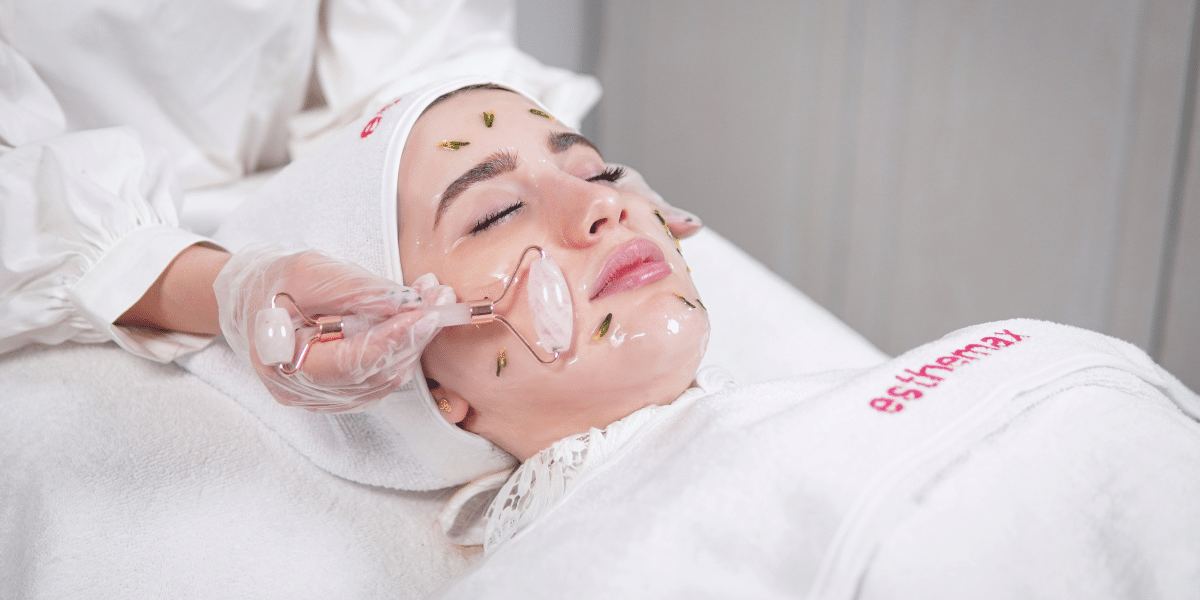Winter is creeping in, and with it comes a whole new set of skincare challenges. The cold months can be harsh on your skin, leaving it dry, cracked, and uncomfortable.
Ensuring your skin stays hydrated and protected is the key to keeping it looking its best during the winter season.
Think about switching to a richer moisturizer to help combat dryness caused by cold winds and indoor heating. Your summer lotion might not cut it against the thick, chill air winter brings.
Maintaining a regular exfoliation routine is important to remove dead skin cells and allow your moisturizers to work their magic.
Don’t forget the sunscreen. Even though the sun feels weaker, UV rays are still present and can affect your skin.
Keeping your lips protected with a good lip balm and staying hydrated by drinking plenty of water will help you feel and look great.
Your skin deserves that extra care to get through the colder months glowing and happy.
Establishing Your Winter Skincare Routine
When it gets chilly, your skin-care routine needs a tweak to tackle the dry air. Keep your skin hydrated and prevent dryness by choosing the right cleanser and incorporating moisturizing products.
Implement serums and oils for extra nourishment.
Choosing the Right Cleanser and Moisturizer
In winter, aim for a moisturizing cleanser that cleans without stripping your skin’s natural oils. A gentle, non-comedogenic option works best, preserving hydration and avoiding clogged pores.
Consider a creamy or oil-based cleanser if your skin leans towards dryness. These types offer hydration while cleansing gently.
Post washing, apply a moisturizing cream designed to combat dry winter skin.
Look for ingredients like hyaluronic acid, glycerin, and ceramides. They help retain moisture and ensure your skin remains soft and supple.
Avoid alcohol-based products that can cause more dryness.
Integrating Serums and Oils
Adding a serum or oil can make a big difference.
Opt for serums rich in hyaluronic acid or vitamin C to boost hydration and protect against harsh weather. These ingredients nourish and brighten, helping to maintain your glow.
Facial oils like argan or jojoba can lock in moisture. They are particularly beneficial when applied overnight.
Layer these products for maximum hydration—apply serum before moisturizing cream.
For ultra-hydration, consider oils as the last step in your evening routine. Use sparingly to avoid a greasy finish while ensuring hydrated skin.
Additional Skincare Tips and Practices
Winter can be tough on your skin with its cold and dry air. Emphasize moisture and protection with strategic practices.
Let’s explore some useful tips for maintaining your skin’s health during the colder months.
Exfoliation and Avoiding Hot Showers
Exfoliation is crucial during winter but should be gentle. Over-exfoliating can strip your skin of essential oils, so it’s best to limit this practice to once or twice a week.
Use products containing mild acids or light beads. Opt for chemical exfoliants with ingredients like AHAs or BHAs to minimize irritation.
Too-hot showers may feel great on a cold day but are not your skin’s friend. They can deplete moisture and exacerbate conditions such as psoriasis or keratosis pilaris.
Stick with lukewarm water and follow up with a hydrating body essence or cream that includes emollients like jojoba oil or lanolin.
Lip Care and Overnight Treatments
Cold weather can be harsh on your lips, leading to chapping and dryness.
Regularly applying a nourishing lip balm with emollients like mineral oil or lanolin throughout the day is essential.
For added care, incorporate lip masks or sleeping masks into your routine at night. Products with antioxidants and vitamins can provide a protective barrier and aid repair.
Keep an intensive lip care regimen to prevent premature aging signs on your lips.
Before bed, coat your lips in a thick balm or mask to lock in moisture. This overnight treatment helps soften lips and repairs any damage caused during the day.
Utilizing Humidifiers for Maintaining Moisture
A humidifier in your home can be a game-changer during winter. Heated indoor air tends to be dry, and a humidifier can add much-needed moisture back into the air.
This benefits not only your skin but your respiratory health too.
Place a humidifier in frequently used rooms to maintain an optimal humidity level around 40-60%.
This can help alleviate dry, itchy skin and prevent conditions like eczema from flaring up. You might notice that even your hair feels more hydrated with regular humidifier use.
Creating this supportive environment pairs well with your winter skincare routine, ensuring skincare products absorb effectively for maximum hydration.
Protecting and Nourishing the Skin
Navigating winter’s chill means stepping up your skincare game. You need to shield your skin from the sun’s rays, amp up hydration to tackle dryness, and fortify your skin barrier for added protection.
These actions help keep your skin looking healthy and radiant even in freezing temperatures.
Importance of Sunscreen in Winter
Even when it’s cold, UV rays don’t take a break.
Wearing sunscreen during winter is just as crucial as in the summer. Choose a broad-spectrum sunscreen with at least SPF 30. It keeps harmful UV rays at bay, minimizing skin damage and premature aging.
Snow reflects UV rays, increasing exposure.
Even if you aren’t spending time outside, applying sunscreen daily ensures you’re protected against unexpected outdoor activities or simply catching sunlight through the windows.
Don’t forget to cover often-missed spots: your ears, neck, and the back of your hands.
Combating Dryness with Hydration Boosters
Winter air can dry your skin, leading to flakiness and uneven texture.
To combat this, use products with hydration powerhouses like hyaluronic acid and glycerin. These ingredients attract and retain moisture, plumping your skin and smoothing any rough areas.
Layer your products for optimal absorption, starting with a hydrating serum and following up with a rich, nourishing moisturizer.
Look for those containing squalane or petrolatum, which create a barrier to lock in moisture.
Reinforcing the Skin Barrier
Keeping your skin barrier in top shape during winter is essential. A weakened barrier can lead to increased sensitivity and irritation.
Ceramides are a must-have, as they help restore and maintain the skin’s natural barrier. Look for moisturizers enriched with ceramides to strengthen your defenses.
Exfoliate gently to remove dead skin cells and allow better penetration of your skincare products.
Avoid harsh scrubs and opt for a mild chemical exfoliant. This preps your skin, making it more receptive to the benefits of your hydration and barrier-repairing products.
Special Considerations for Sensitive Skin
Winter can be especially tough on sensitive skin, often causing issues like dryness and irritation.
It’s key to focus on gentle care with specific products to keep your skin feeling comfortable and healthy.
Managing Conditions like Eczema and Rosacea
If you have eczema or rosacea, winter might make these conditions flare up due to the dry air.
To help manage, consider using moisturizers specifically designed for sensitive skin. Products containing aloe vera can soothe and reduce inflammation.
Make sure you apply a rich body lotion after showering and remember to keep a good honey lip balm for your lips.
It’s also helpful to maintain a consistent skincare routine.
Avoid hot showers, which can strip moisture from your skin, and opt for lukewarm water instead.
Be gentle with your skin, patting it dry with a soft towel rather than rubbing, as this reduces the chance of irritation and redness.
Choosing Fragrance-Free and Hypoallergenic Products
Sensitive skin often reacts to fragrances, so choosing fragrance-free products is essential.
Hypoallergenic options are designed to minimize allergic reactions. Check product labels to ensure they are suited for your skin type.
Look for moisturizers labeled as fragrance-free, especially ones with aloe vera and ceramides to help maintain your skin’s barrier.
Keep your lip balm and body lotion in mind, ensuring these are also without fragrances to avoid unnecessary irritation.
Published by: Martin De Juan


















